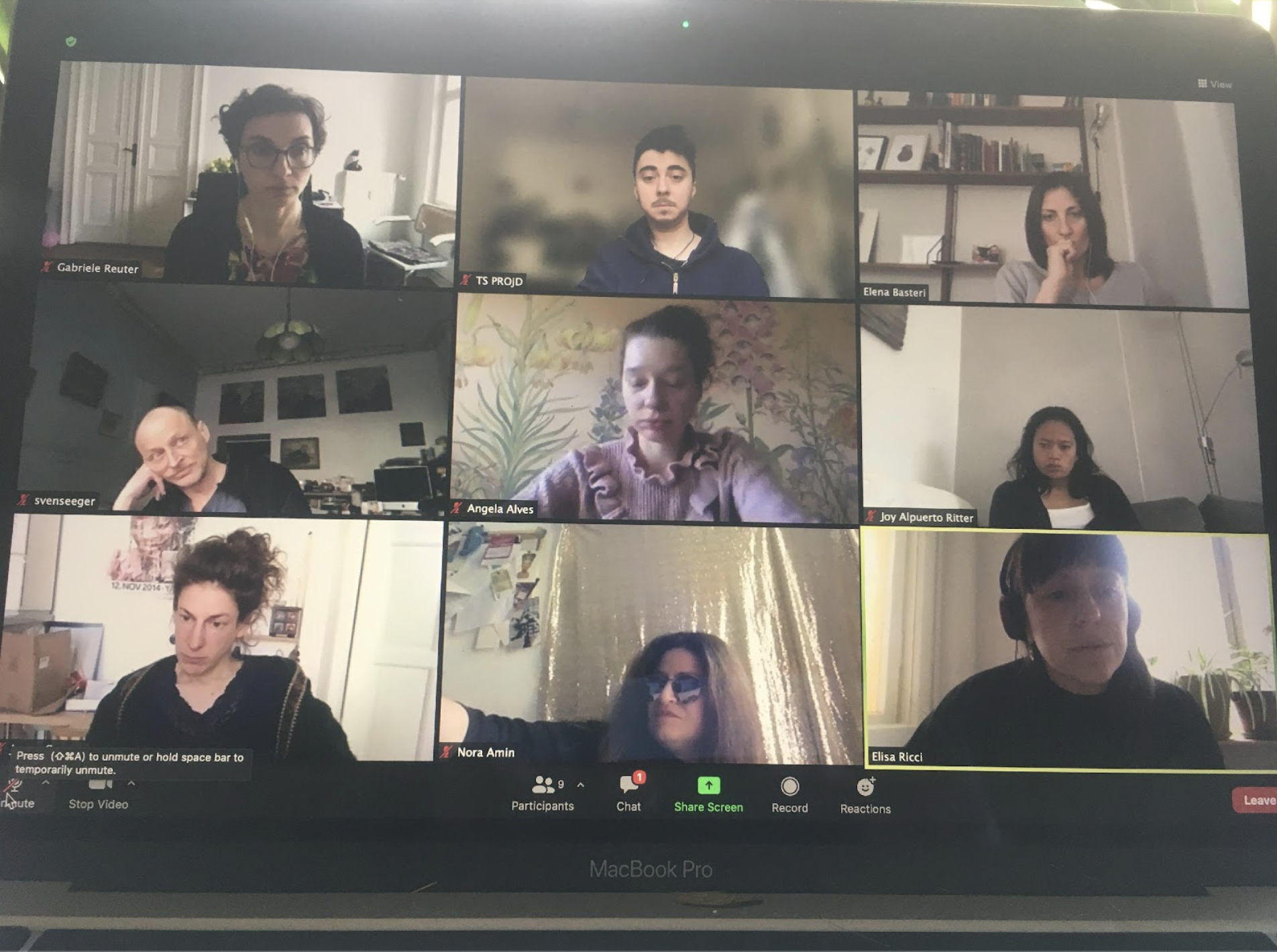A site for encounters, a collective vision, open to anyone and everyone, a framework where dance can be (re)presented in diverse ways, where education and outreach through and in dance leads to a common language. An idea that so many of us in the Berlin dance scene share and are building in different ways, step by step.
Such an ‘innovative and forward-looking’ step cannot be achieved overnight, especially not if the shared goal is a fundamental transformation of society at the local, regional, and even international level. From the very beginning, there seemed to be a profound focus on inclusion and diversity, which at all times shaped the conception process for the centre. In our current social power systems, it is extremely important to re-examine relationships of dependency and empower those who are less visible in society to move forward and be self-sufficient, both individually and collectively, creating decentralised programmes run by and with marginalised communities. The more marginalised a group is in society, the less power it has, and the more disadvantaged it is compared to mainstream society. In cultural institutions, for example, marginalised people have less access to education, funding and influential positions. Marginalisation is intensified in hierarchical power structures and goes hand in hand with discrimination. The future is crying out for these processes and relationships to be reversed and transformed through the teaching of empathy and equality. For this we need motivated young people and a holistic shift in perspective. Viewed from this perspective, dance education has the power not only to help individuals realise their true selves through movement, but also to foster a kind of collective empathy and an appreciation of ‘sharing’.
In this still imaginary place, where very different people, perspectives, forms of expertise and ideas meet, a team is already emerging at the core of a participatory process that is seriously and determinedly engaged in building a structure that can hold all these different visions, needs and potentials together like a spider’s web, and at the same time develop a place where ‘all’ dance education activities in the city and their different target groups can converge, as well as launching new programmes, collaborations and hybrid projects that support the decentralised Berlin dance landscape. The role of this team and its extended collaborators proves to be all the more important in that it bundles the activities of the stakeholders working in dance education, from the needs assessment phase through to implementation, and acts as an education, exchange and development platform for the scene and beyond. The key skills and responsibilities of this team are in designing and monitoring a framework that makes it possible to assess the extent to which resources and co-creators are equally distributed and included. the question of which committees and advisory boards should support this process of fair distribution and (re)presentation is to be explored and mapped out in further pilot programmes, as the decentralised landscape of dance education in Berlin is largely invisible and hidden, necessitating a more precise survey of the field and more targeted networking tactics.
As outlined in the initial descriptions of this project, in the current process, we are thinking extensively and in detail about the networking, practice and research of dance in relation to urban society – both in the form of a physical location and as a decentralised institution for cultural education in dance that is constantly engaged in interaction with, and made for, a diverse audience. In stages of prototype labs and pilot encounters that started in the conception phase, a local and (inter)national network is being built up through education and community engagement work, and collaborations with artists are being established. In further phases, the centre will enable project development and consultation with/by Berlin dance-makers, and processes of knowledge transfer will be set in motion through multi-perspectival research labs. The development of inclusive assessment criteria with regard to educational qualifications is intended to provide access to professional dialogue for those who fall outside the traditional, conservative system.
Dance education and outreach at the intersections of public relations work and forms of community engagement embedded in social media not only serve to raise the profile of the Berlin dance scene but also aim to build bridges with social groups that operate outside the elitist art and culture scene. Only through this work is it possible to generate lasting perspective shifts and to fight for a new contemporary form of community culture in this age marked by competition and egocentrism.
